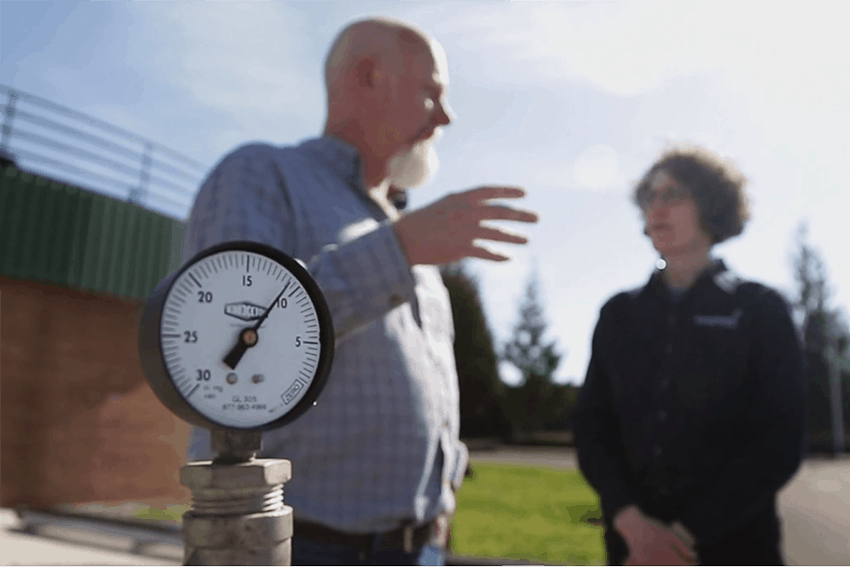If your municipal facility or business manages organic waste, you might be able to produce biogas and generate renewable electricity.
- Water resource recovery facilities: Using anaerobic digestion to treat wastewater means you can generate both renewable energy and heat.
- Food waste: Waste from food and drink processing is readily convertible to biogas to power systems and reduce operation costs.
- Wood waste: This material can be used to produce steam and generate renewable electricity.
- Dairies: Manure can be converted to biogas to generate clean energy to power operations.
-
Establish your eligibility.
To be eligible for an Energy Trust incentive, a biopower project must:
- Be less than 20 megawatts in nameplate capacity (maximum rated output).
- Be located in the service territory of, or deliver power to, Portland General Electric or Pacific Power in Oregon.
-
Give us a call.
If you think you have a biopower opportunity, email Josh Reed at joshua.reed@energytrust.org call 503.445.2954.
-
Get the help you need.
It’s helpful to start with a feasibility study or expert assistance to move through permitting or utility interconnection. Energy Trust can provide up to $200,000 in project development assistance for these and other types of project development activities. We can also help you identify engineers or other experts with the experience to help.
Project Development Assistance
Energy Trust provides project development assistance including, but not limited to, grant writing assistance, feasibility studies, final design, permitting, and utility interconnection. We can pay up to 50% of the cost of hiring an outside consultant to provide expert assistance for these activities, up to a maximum of $200,000.
Project development assistance forms
Installation Incentives
Energy Trust provides incentives towards the construction costs of your biopower project. Incentive levels are based on a project’s cost in comparison to the market value of the energy produced, or “above-market cost”. A potential installation incentive is based on a net-present value assessment that accounts for all the project’s costs and revenues. In return for our funding contribution, we ask for a negotiated share of the project’s Environmental Attributes (e.g. Renewable Energy Certificates), which are held in trust for the ratepayers who pay the public purpose charge that funds our work.
Incentives are subject to funding availability and may change.
Net Metering
If you install a biogas or hydro system, your utility will come to your site and switch out your existing utility meter for a bidirectional “net” meter (there is no charge for the new meter). Visit our net metering page to learn more about the benefits of generating your own energy to reduce your electricity bills.
Questions? Need Help? Contact Us.
We can help you assess whether you have a viable biopower project and discuss incentives that may be available to you. Email Josh Reed at joshua.reed@energytrust.org or call 503.445.2954.
